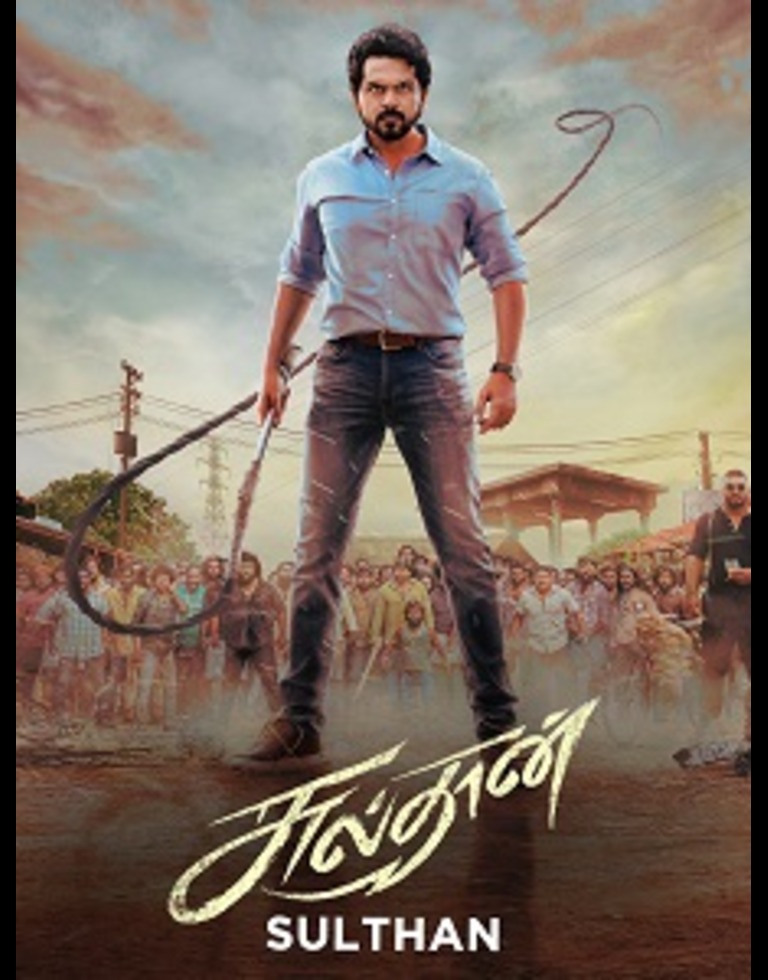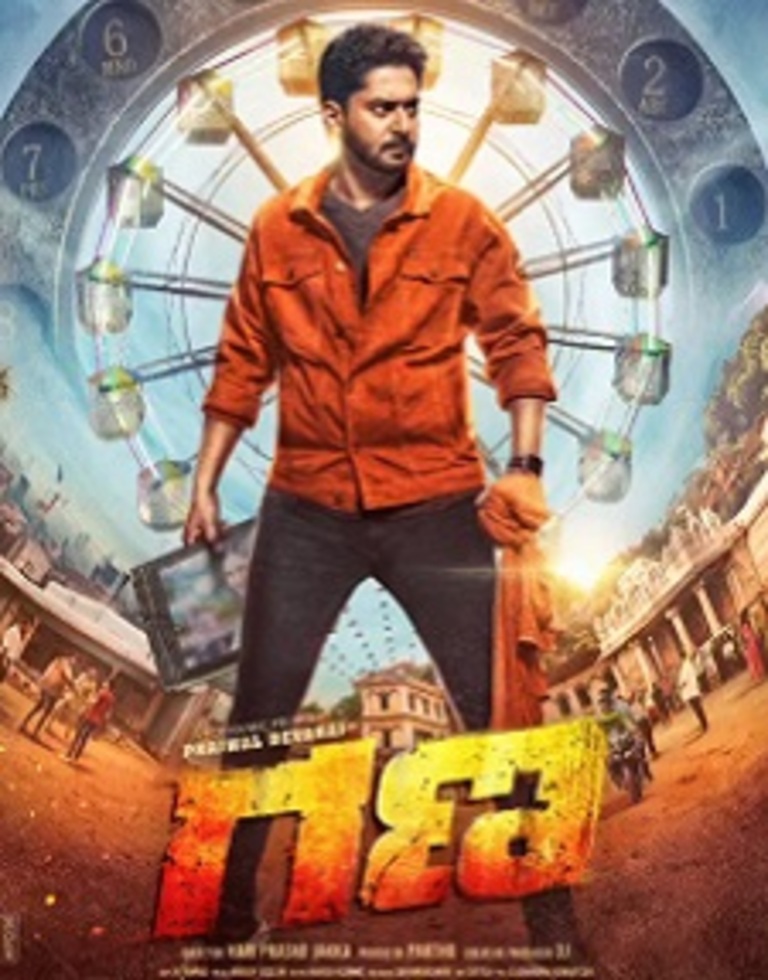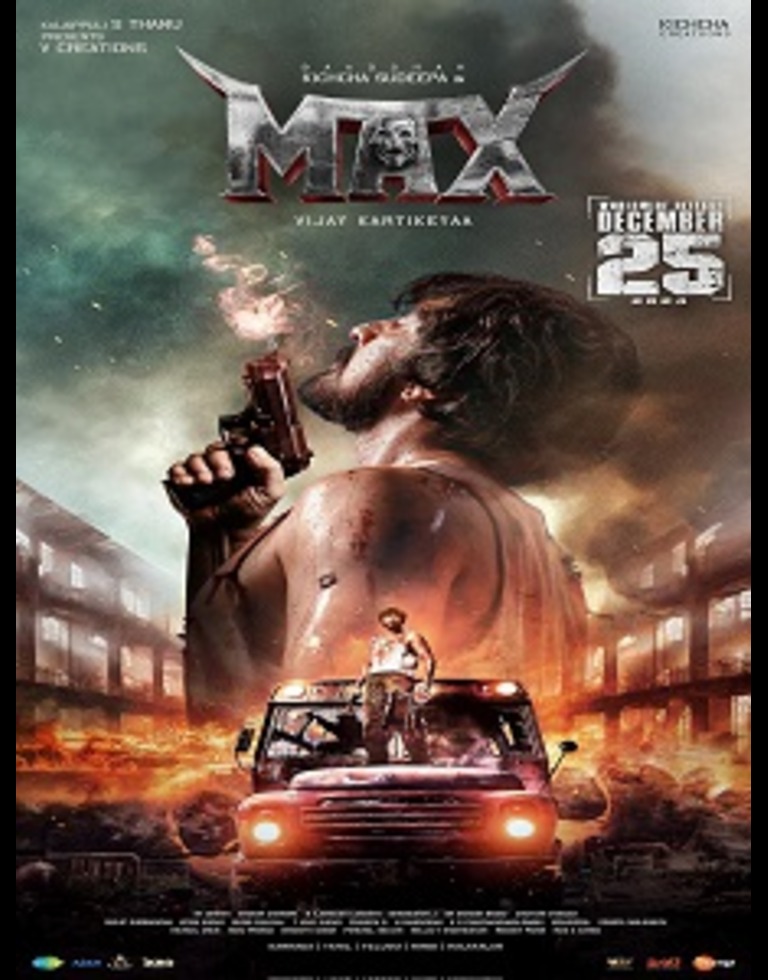

Sulthan (2025) is a fast-paced, adrenaline-charged action film that explores themes of justice, revenge, and sacrifice. Directed by Vikram Shetty, it delivers a visceral cinematic experience through intense performances, dynamic action, and familial undercurrents, set in a fictional South Indian border town.
🧩 Premise & Plot
The film opens with Raghav “Sulthan” Yadav (played by Arjun Deshmukh), a stern yet honorable district magistrate sent to clean up a lawless region torn between warring smugglers. At first, Raghav appears to be another tough bureaucrat—serious, solitary, and unyielding. But he harbors a secret past: as a young man, he was part of the notorious Yadav gang before renouncing violence after a tragic betrayal that cost him dearly. His return to the region isn’t coincidence—it’s a reckoning.
Assigned to dismantle the shadow economy of drugs and illegally mined resources, Raghav clashes with rival kingpins Karunakar “Kallu” Rao and Santoshi “Santu” Pillai. When his attempts at negotiation are met with violence, he erupts from within, determined to uproot crime. What follows is a riveting descent—he goes from enforcing paper regulations to forging alliances with honest residents and former allies, only to again face betrayal, but this time with calculated retaliation.
A key emotional axis is Raghav’s relationship with Meera Rao (Sanya Malhotra), an artist and social worker who helps educate the region’s youth. She becomes both his conscience and anchor, reminding him of the man he once was and urging non-lethal resolution. Their connection adds weight to Raghav’s violent crusade, introducing hope amid gunfire.
As chaos escalates, Raghav’s tactics grow daring—coordinated midnight raids, courtroom evidence reveals, street protests, and, in the third act, a cinematic showdown atop a derelict sugar mill under torrential rain. It’s here that his dual identities converge: bureaucrat and ex-gangster, lawful officer and vigilante, haunted man and symbol of rebirth.
🎭 Performances
-
Arjun Deshmukh delivers a layered performance—calm and idealistic on the surface, with explosive rage simmering beneath. His journey from detached officer to righteous warrior unfolds convincingly. His eyes carry the burden of Raghav’s past, but he never crosses into caricature.
-
Sanya Malhotra is compelling as Meera—strong, compassionate, and principled. She holds her own in the action-driven narrative, contributing emotional depth and moral clarity, particularly when Raghav veers into bloodshed.
-
Vikrant Massey, as Kallu Rao, is ruthlessly charismatic. He perfectly embodies a businessman who cloaks crime in philanthropy, delivering chilling diplomacy followed by sudden brutality.
-
Ashutosh Rana, playing Santu Pillai, offers memorable intensity—part clownish underworld operator, part vengeful extremist. His theatricality occasionally contrasts sharply with the film’s darker tone, but he remains a formidable presence.
-
Supporting cast—local schoolteachers, residents inspired by Raghav’s stance, even former gang members who oppose him—all add texture and humanity. Even small roles are layered with vulnerability and loyalty.
🎬 Direction, Screenplay & Pacing
Vikram Shetty directs with muscular energy. The film pulses from one high-stakes scene to another, with just enough breathing room for emotional moments and investigative tension. The screenplay (co-written with Rohit Shah) balances procedural beats—court filings, digital evidence—with raw combat sequences and public mobilization.
However, at 165 minutes, the film sometimes feels stretched. Flashbacks explaining Raghav’s guilt and teenage betrayal could have been trimmed, and the middle act, while building tension, can feel episodic—six raids and three betrayals before the final storm climax.
💥 Action, Technicals & Tone
-
Action choreography earns applause: hand-to-hand combat, swift pistol duels, dramatic chase sequences, and the rain-drenched finale in the sugar mill are shot with clarity and impact.
-
Cinematography alternates between sterile government offices and gritty rural landscapes—barren farms, graffiti-laced walls, tense crows gathering atop powerlines. Flood and dust serve as metaphorical backdrops to Raghav’s moral turbulence.
-
Sound and music support momentum: layered percussion, building strings, low horns during tense political scenes. The final theme blends street chants with orchestral punch, embodying the region’s awakening.
-
Editing, however, is uneven: rapid cuts heighten suspense in action scenes, but emotional family and protest sequences sometimes lag. A tighter rhythm could have trimmed unnecessary build-up.
⚖️ Strengths & Weaknesses
Strengths:
-
Arjun Deshmukh’s performance anchors the film with emotional honesty and action credibility.
-
High-octane action set-pieces executed with grit and realism.
-
Moral complexity: It avoids glorifying violence, exploring the thin line between justice and vengeance.
-
Strong supporting cast giving weight to both crime syndicates and community resistance.
Weaknesses:
-
Lengthy runtime dilutes tension at times.
-
Occasional tonal shifts: toying with melodrama in a film otherwise grounded in grittiness.
-
Supporting arcs underutilized: Meera’s backstory and local ally motivations are hinted at but not fully explored.
🎯 Final Verdict
Sulthan roars with action and stakes, bolstered by Arjun Deshmukh’s compelling amid moral conflict. Though stretched in places, it delivers a triumphant exploration of lawful defiance and redemptive justice. If you’re drawn to righteous action films that reflect on the cost of power, Sulthan compels—with heart, grit, and explosive style.



